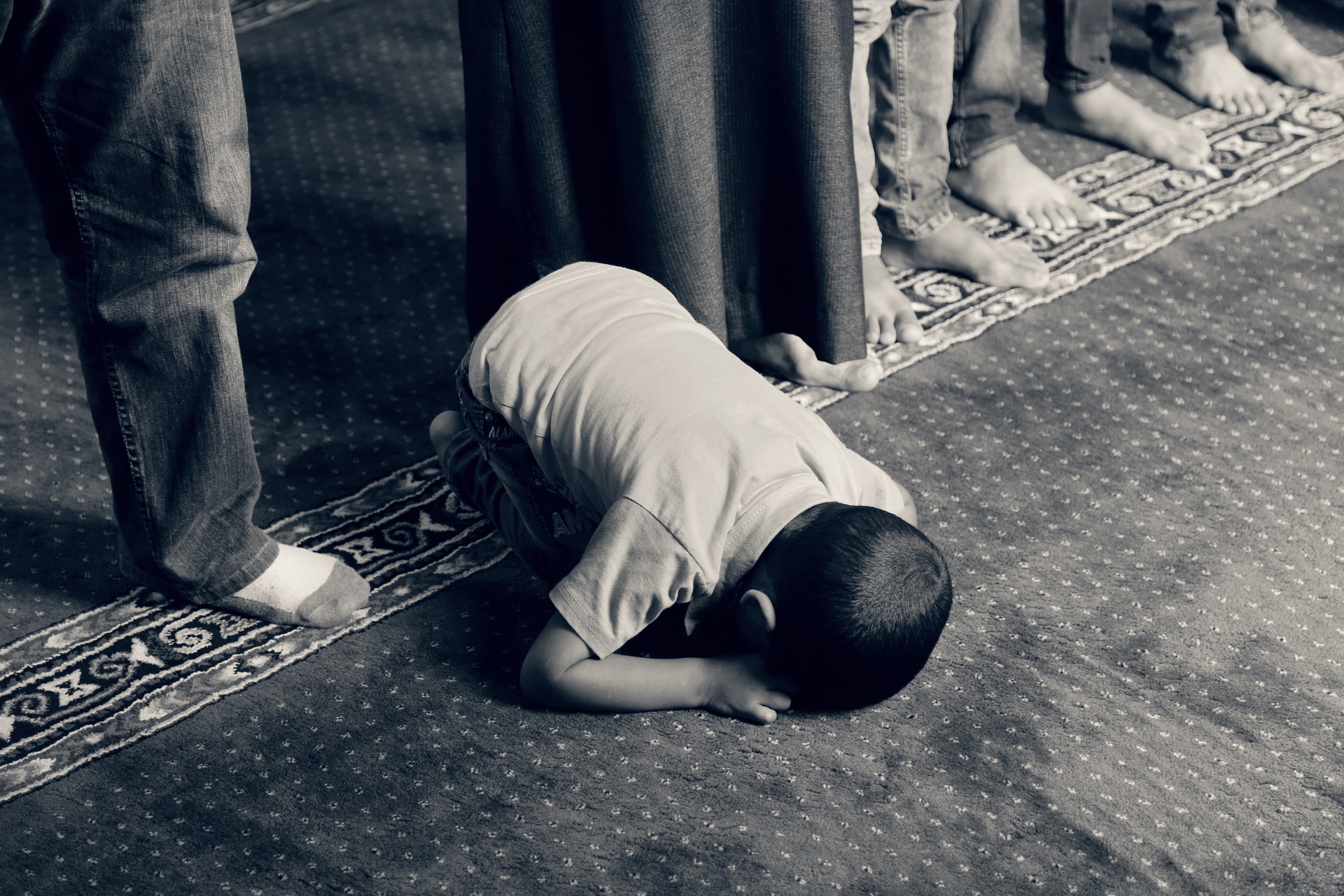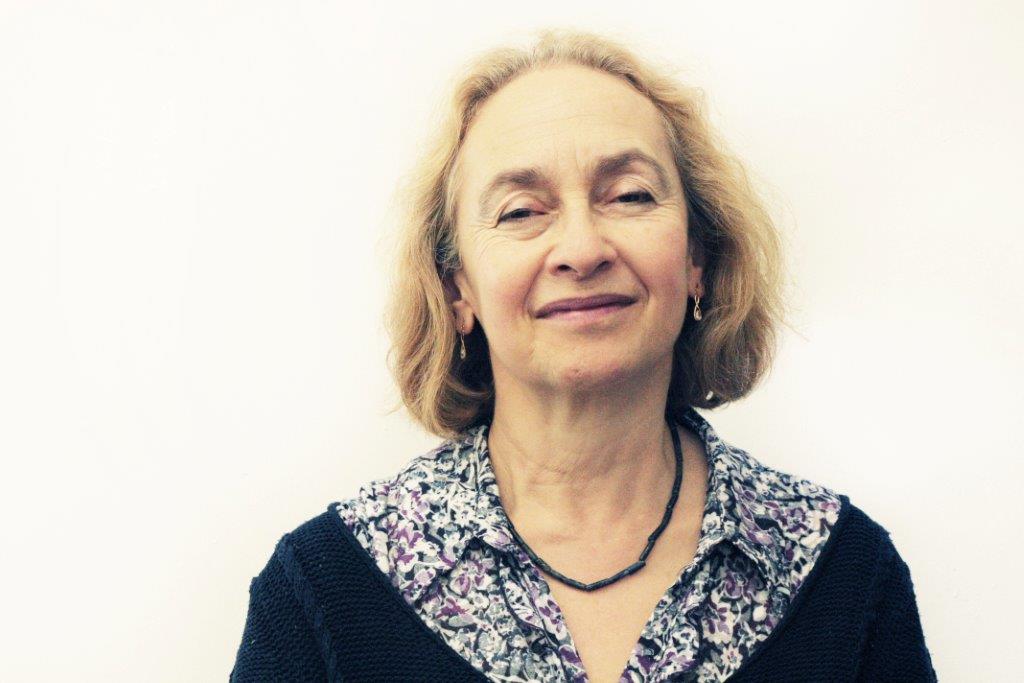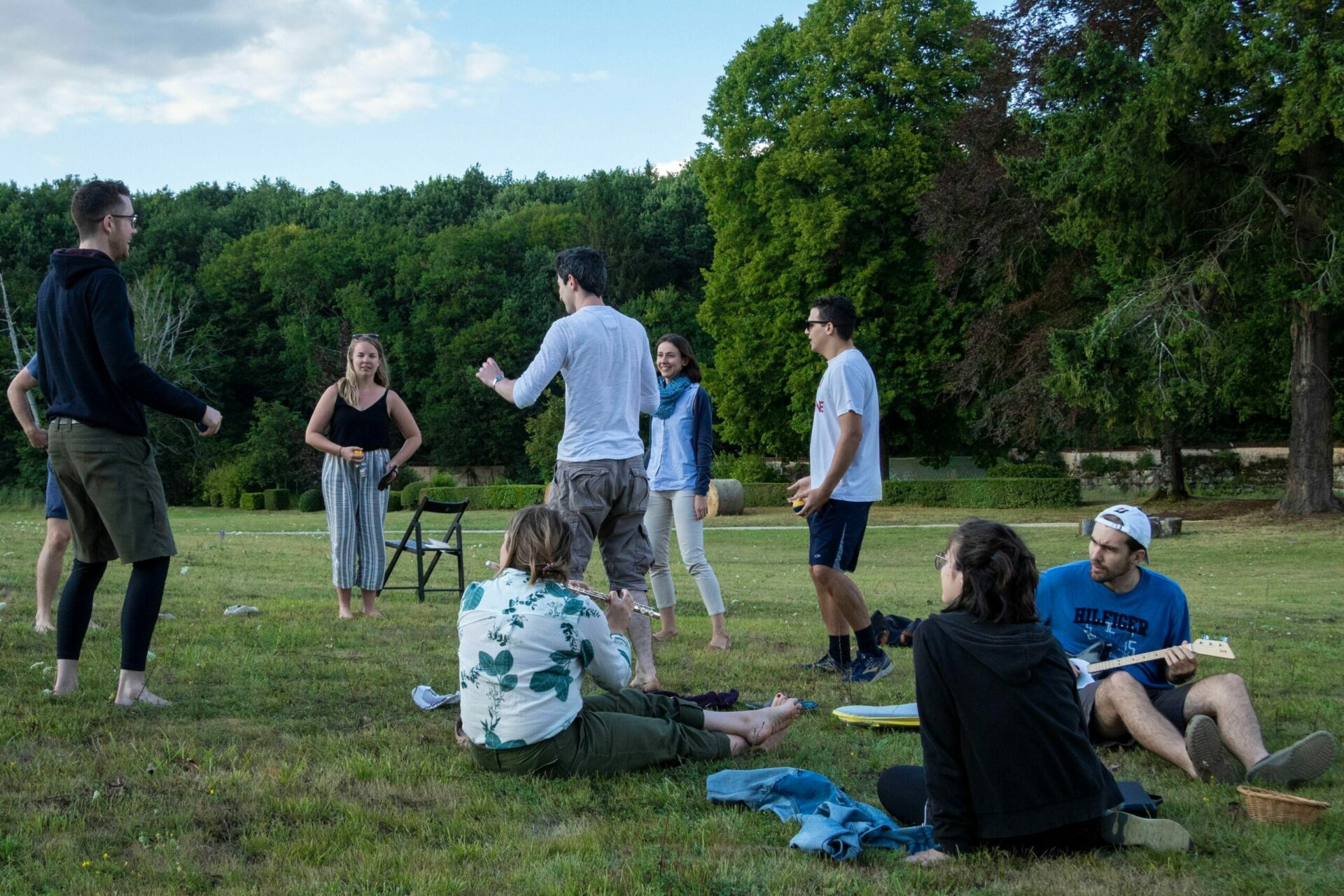‘ Compassion’ is the most frequently occurring word in the Qur’an. Each of its 114 chapters, with the exception of the 9th, begins with the invocation ‘In the name of God, the Compassionate, the Merciful…’ yet a great deal of the escalating violence and terrorism that we are living with today can be attributed to Muslims. How can we come to terms with this obvious contradiction?
Religious extremists believing in an angry, punishing God, who see themselves as the agents of this God, are sadly to be found in both the Islamic and Christian tradition, a situation well noted by the American author and scholar Wendell Berry ‘……(certain disciples of ) the Qur’an and the Bible might be divided into two groups: those who appoint themselves as agents of divine anger, and those who understand themselves as called to be agents of divine mercy…….
To think of oneself as an agent of God’s anger is exceedingly attractive; there are certain intense pleasures in anger, especially if one’s own anger can be presumed to coincide with God’s, and also in the use of an angry self-righteousness as a standard by which to condemn other people. This is a pleasure necessarily founded on the shallowest sort of self-knowledge.’
Most of our knowledge of Islam today comes to us through the reporting of acts of horror committed by Muslim terrorists, and by the declarations of its extremist and fanatical elements. But we in the West are frequently unaware that compassion and love are the essence of Islam as expressed in the Qur’an. Are there violent texts in the Qur’an? Yes, indeed there are, as there are in the scriptures of the Judeo-Christian tradition, the Book of Joshua and some of the Psalms being fine examples of scriptural violence. It is the literal reading of these texts in all three of the Abrahamic traditions that is one of the principal causes of religious fundamentalism: corruptio optimae pessima, ‘ the corruption of the best becomes the worst of all.’
At the heart of Muslim belief is the principal of tawhid or oneness. This oneness, or unity, has been described as that which dominates the mind in Islam, while the heart is intrinsically linked to the concept of compassion. “My Mercy encompasses all things” (Qur’an 7:156). “My mercy takes precedence over my anger” (hadith qudsi, a saying in which God speaks through the Prophet). Islam sees the sentiments of love and compassion, ‘com passio’ – the ability to feel with the other, as expressions of the interconnected oneness of all human beings, reflecting the oneness and unity of God.
The Qur’an frequently speaks of God’s plan for diversity, and the goodness of difference as part of this plan. “O mankind, We have indeed created you as male and female, and made you as nations and tribes that you may come to know one another” (49:13); “And every community has its direction of which He lets them turn towards it. Vie, therefore, with one another in doing good works. Wherever you may be, God will gather you all unto Him”. (2:148) “There is no compulsion in religion” (2:256); “Truly, those who believe, and the Jews, and the Christians and Sabeans – whosoever believes in God and the Day of Judgement and act virtuously will receive their reward from their Lord; no fear of grief will befall them”. (2:62) and “Whoever saves the life of one human being, it shall be as if he had saved the whole of humankind” (5:32)
The great mystical writers of Islam, the Sufis, wrote constantly of love and compassion as essential to the spiritual path of the Muslim. Love, they describe as the remedy of all ills and the alchemy of existence; love transforms poverty into riches, war into peace, ignorance into knowledge and hell into heaven.
Jalal al-Din Rumi, born in modern-day Afganisthan in 1207 AD is arguably the best known in the West of all the great Sufi writers. Rumi stipulates that while love is of the essence in Sufism, it is something that has to be experienced to be understood. “Love cannot be contained within our speaking or listening. Love is an ocean whose depths cannot be plumbed…….Love cannot be found in erudition and science, books and pages…..the kernel of Love is a mystery that cannot be divulged”. (Diwan-i-Shams-I Tabrizi)
Rumi also reminds us of that the message of love involves embracing diversity and the transcendence of self; this transcendence being the kernel, not only of Islamic spirituality, but of all true spirituality.
‘Come so we may speak to each other from spirit to spirit, talk to each other in a way hidden from eyes and ears.
Let us laugh without lips and teeth just as the rose garden.
Let us discourse without lips and mouth just as the thought.
Let us tell the secret of the world completely with our mouth closed as the level of ‘Aql al-Awwal (the First Intellect) and in the awareness of God’s existence.
Nobody talks to himself with a loud voice. Since we are all one, let us call out to each other from our heats without mouths or lips………….Let us give up conversation made with our tongues and vibrate our hearts.” (Divani-i Kabir)
I have put away duality: I have seen the Two worlds as one…….
(Divan-i-Shams-i-Tabriz)
Preceeding Rumi by almost a century, Abu Bakr Muhammad Ibn Arabi, (1165–1240), born in Andalusia in the south of Spain, is considered one of the greatest writers of the Islamic mystical tradition. Known as the poet of “the Cosmic Heart”, he speaks to us of ‘Discovering the Deeper Grounds of Suffering in Opening the heart’…. “Thus the person who understands the meaning of suffering increases his loving-compassion for the one who is in pain, then he/she will be rewarded….this is because (as the Arabic proverb expresses it) “every moist heart is a divine reward”.
“The mystic Ka’ba is the heart of being. It has been said to him: “The Temple which contains Me is in your heart.” The mystery of the Divine Essence is no other than the Temple of the heart, and it is around the heart that the spiritual pilgrim circumambulates”. (Tarjuman al-ashwaq)
“The Beloved becomes a mirror reflecting the secret face of the mystic lover, while the lover, purified of the opacity of his ego, becomes in turn a mirror of the attributes and actions of the Beloved.” (Futtihdt al-Makkiyya)
(The idea of the soul as mirror, reflecting the image of God, had been previously used by the early Christian mystics, notably Ephraim the Syrian and Evagrius.)
“O marvel! a garden among the flames… My heart has become capable of all forms. It is a meadow for gazelles and a monastery for Christian monks, A temple for idols and the pilgrim’s Ka’ba, The Tables of the Law and the Book of the Koran. I profess the religion of Love, and whatever direction its steed may take, Love is my religion and my faith.” (Tarjuman al-Ashwaq)
Finally, Abū Ḥāmid Muḥammad ibn Muḥammad Al Ghazali (1058– 1111) was born in Persia. In his work “The Duties of Brotherhood”, Al Ghazali speaks of the necessity of love towards the “other” and how through love, all humanity is in the embrace of the oneness of God in all creation:
“ Know that the world is one stage of the journey to God Most High. All in this station are travelers. Since the destination of the journey of this caravan of travelers is the same, they are all as one. There must be friendship and unity among them and mutual aid……………Those who love each other in God, they are the friends of God Most High.” (The Duties of Brotherhood, in The Alchemy of Happiness, Book XV)
In our own times we can find similar spiritual thinking in the works of Sufi writers such as Reza Shah-Kazemi, “The Other in the Light of the One’; “Paths to the Heart” and “Seeing God Everywhere’, or Seyyed Hossein Nasr, “Knowledge and the Sacred” and “Islamic Spirituality”.
The recent events in Egypt, despite the horror of the violence involved in the attack on the Coptic Cathedral, have provided us with an example of Islamic love and compassion in action. While Christian communities in Egypt predate the arrival of Islam, the Muslim population is now the vast majority. Until fairly recent times the communities have lived and worshipped alongside each other for close to 1400 years, a situation which has been compromised by the relatively recent rise of religious fundamentalism. Nevertheless, when the Coptic Two Saints Cathedral in Alexandria was attacked by a suicide bomber on New Year’s Day, causing the deaths of 23 people, the Muslim Authorities condemned the attack and appealed to their communities to protect their Christian neighbours. As a result, thousands of Egyptian Muslims descended upon the Coptic churches to protect the Christian worshippers during the Christmas celebrations; an extraordinary stance by the Muslim population against sectarian violence.
During the non-violent demonstrations of the current pro-democracy revolution, the green banner showing the Cross and Crescent, symbolic of Christian – Muslim unity during the struggle to overthrow British rule, has been seen fluttering alongside the Egyptian flag. A Muslim Imam and a Coptic priest have together addressed the demonstrators in the square announcing “United we stand, we are all Egyptians.”
We live in dangerous times where dialogue between the religions is no longer a luxury but a necessity. The need to make common cause with our Muslim brothers and sisters who are as appalled and frightened by this violence as we are, has become urgent. There is no one simple explanation for the violence, nor is it restricted to Islam, but as a prominent Muslim recently explained, we in the West should understand that the Islamic world feels itself besieged and facing many obstacles and challenges; challenges such as the impact of colonialism, followed by the current domination of the West; the polarization between certain forms of Muslim militancy and modernisation; and the difficult problems of interpreting sacred texts.
Perhaps the most simple and effective form of dialogue is friendship; to approach the ‘other’ with an open mind and a spirit of genuine enquiry. Relationships can even remain on a purely social level, where common interests, such as family affairs, or sporting interests can be explored. A fine example of this is the imams and clergy cricket match, which takes place annually in Bradford in the North of England. Having lived for some years with the Muslim community in Bradford, I have come to know and love the Islamic tradition. My Muslim friends are kind, devout and of great faith. To my immense surprise, I found that the more I came to know the Islamic tradition, the more it confirmed my Christian faith. This seemed completely paradoxical, until I consulted other Christian colleagues working in inter-religious dialogue, to find that they were of like mind. True dialogue, to be effective, has to be based on a firm sense of one’s own identity, does not involve a search for some sanitised middle ground, but rather acknowledges diversity and respect for the ‘other as other’.
Mahatma Ghandi had a wonderful plan for dialogue with traditions other the than one’s own, enabling us to approach ‘the other’ without a sense of superiority or a hidden agenda. It is also important not to look always for similarities where the traditions appear to touch.
Ghandi’s instructions were simply:
1 Try to find in other religions what is important to your tradition, e.g. in the Qur’an, look at Exodus, the story of Joseph, Mary, Jesus etc.
(We Christians are frequently unaware of the importance to Muslims of Jesus and the Virgin Mary. “Remember when the angel said, ‘O Mary! Verily God announceth to thee the Word from Him; His name shall be Christ Jesus, the Son of Mary, illustrious in this world and the next, and one of those who have near access to God.” (3:45); “Jesus, Son of Mary, is an apostle of God, and His Word which is conveyed into Mary, and a spirit proceeding from Himself.” (4:171)
2 Find some aspect of the other tradition with which you disagree or do not understand. Find an expert in that tradition to explain it to you.
3 Focus any critique first on your own tradition.
In 2007 a large group of Muslim Scholars published a paper entitled “A Common Word Between Us and You”. This document constitutes a hand held out to Christianity and a huge step forward in relations between the two faiths. It can be visited at: http://www.acommonword.com/
Those of us who practise contemplative prayer and study our mystical tradition are in a privileged position to encounter transcendental Islam in its Sufi tradition. The prayer of the heart is intrinsic to both the Christian and Islamic mystical traditions. To enter into dialogue which reaches an impasse because of seemingly irreconcilable theological positions is to deny or ignore the mystery of God. As St Augustine informed us, we see God through the ‘ eye of the heart’ and today, more than ever, the whole world is in dire need of ‘heart knowledge,’
Sheelah Treflé Hidden
London
Image by Samer Chidiac from Pixabay




